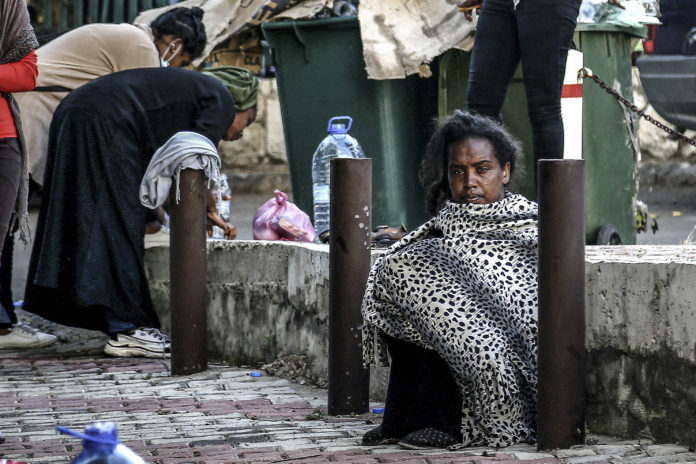Workers building the Al Bayt Stadium went without pay for seven months as their employer, Qatar Meta Coats (QMC), failed to compensate them. Qatar’s World Cup organizing body has banned QMC from obtaining further contracts for world cup projects and required the company to pay three months of salaries owed.
Despite the progress many workers are still owed wages. Many were unable to renew their work permits after the company was sold and new management came in to resolve the payments issue.
The Pakistani government has raised concerns with the Qatari Ministry of Labor over the mistreatment and non-payment of approximately 80,000 Pakistani workers contributing to the effort to build stadiums, roads, and accommodation. In addition to individual workers, Pakistani company Descon claims that Qatari authorities failed to pay them for their services, a concern which Pakistani officials have also raised.
Amnesty International has long sought to highlight the plight of migrant workers in Qatar running a campaign entitled “Qatar World Cup of Shame.” On the issue of non-payment of wages, Amnesty’s Head of Economic and Social Justice, Steven Cockburn, said, “This case is the latest damning illustration of how easy it still is to exploit workers in Qatar.”
Amnesty has also questioned why, if Qatar knew about non-payment issues from July, 2019, as the Supreme Committee for Delivery & Legacy has indicated, the government allowed the employer to continue to exploit workers for months.
Pakistani workers have said they lost their jobs after reporting non-payment to Qatari authorities, creating fear among workers to speak out and underlining the inadequacies in Qatar’s complaints processes for migrant workers.
Despite the well documented abuse of migrant workers, FIFA refuses to take responsibility, disputing claims that ongoing mistreatment of workers is indicative of the organization’s disregard for human rights.
A controversial choice
The selection of Qatar to host the 2022 cup was a controversial choice given the lack of infrastructure and extreme heat. The competition normally takes place during the summer period. Investigations into FIFA, launched by the United States, later revealed that Qatar won the bid as a result of extensive bribes given to FIFA officials.
As detailed by Arabia Policy in April, former FIFA President Sepp Blatter suggested that the United States could end up hosting the 2022 cup instead of Qatar. Whilst a change of host country is unlikely to occur, Blatter’s suggestion highlights the ongoing trepidation about Qatar’s ability to host the cup.
The ongoing exploitation of migrant workers in Qatar is a cause for international concern and is a further stain on the Gulf nation’s World Cup, prior to the event kicking-off in over two years’ time.


